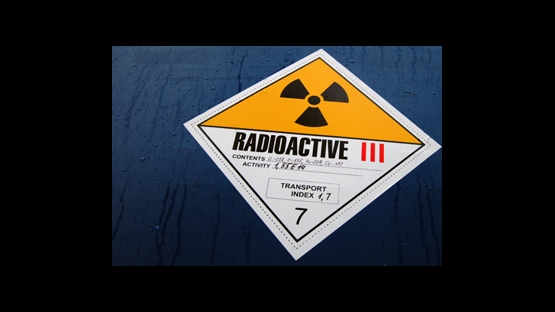The 2nd International Symposium on the Minimization of Highly Enriched Uranium (HEU) took place in Vienna from 23-25 January 2012. Organized by the governments of Austria and Norway, the non-governmental organization Nuclear Threat Initiative (NTI), and the IAEA, the symposium re-examined the issue of HEU minimization and highlighted the progress made since the first Symposium in Oslo in 2006.
Held at the Diplomatic Academy of Vienna, the Symposium discussed the status of HEU-fuelled operating facilities, successes and challenges in HEU minimization and on-going international cooperative efforts. The speakers included senior policy makers, governmental officials and scientists active in the field.
Norwegian Ambassador Jan Petersen and Austrian Ambassador Helmut Böck opened the Symposium, stating their support for the minimization of HEU and for creating a world free of nuclear weapons.
Also speaking at the Symposium was IAEA Deputy Director General for Nuclear Energy, Alexander Bychkov, who stressed the importance of HEU minimization in global non-proliferation efforts.
While there have been great successes - even breakthroughs - in this area in the last five years, significant work remains to be done to reduce the number of HEU-fuelled facilities and associated stocks of spent HEU fuel in the world, Mr. Bychkov pointed out.
"The IAEA plays an essential role in this work by supporting Member States which request assistance in transitioning away from HEU, and by assisting in the repatriation of spent and fresh HEU reactor fuel to its country of origin," he said.
HEU Problem
Hundreds of kilograms of HEU exist in research reactors in approximately 30 countries, enough to build a nuclear weapon. If this material fell into the wrong hands, a major security threat would arise.
HEU minimization is a very complex process. Many reactors can switch to Low-Enriched Uranium (LEU) by changing their HEU fuel for higher density LEU fuel, a process known as "conversion", but others need a special fuel for conversion that is currently being developed. Yet others fear that converting to LEU will negatively affect their performance and impair the business they do.
Upon request, the IAEA supports Member States in all stages of their HEU conversion process. It assists with reactor core conversions into Low Enriched Uranium (LEU) and prepares guidelines and documents that help Member States with their HEU conversion and repatriation projects.
Through joint efforts of the international community, the IAEA, the United States and Russia, numerous research reactors have converted to LEU. Furthermore, the conversion of molybdenum-99 producing facilities has also seen significant progress. Molybdenum-99 is the life-saving medical isotope historically produced in HEU-fuelled research reactors. All commercial suppliers of this isotope have committed to converting their facilities to LEU by the year 2015.
HEU Conversion for the Future
The Vienna Symposium on HEU minimization builds on the results of the first Symposium in Oslo in 2006 and is fully aligned with other international initiatives. The Symposium also highlighted general consensus that HEU minimization will make the world safer and needs to be achieved for as many facilities as possible with the support and cooperation of all stakeholders.
"Overall, the Symposium showed that while differences in pace and priority may remain, there is a robust and growing consensus on the necessity of HEU minimisation worldwide," Mr. Bychkov concluded.
Mr. Pablo Adelfang, Head of the IAEA Research Reactor Section, for his part reiterated the IAEA's support for international nuclear non-proliferation efforts associated with reducing the amount of highly enriched uranium (HEU) in international commerce.
"Upon request by interested Member States, IAEA projects and activities will directly support conversion of research reactors from HEU to LEU fuel," Mr. Adelfang said, "and the Agency is also ready to provide direct support to associated efforts aimed at returning research reactor fuel to the country where it was originally enriched."





